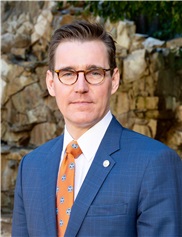Grants Funded
Grant applicants for the 2024 cycle requested a total of nearly $3 million dollars. The PSF Study Section Subcommittees of Basic & Translational Research and Clinical Research evaluated more than 100 grant applications on the following topics:

The PSF awarded research grants totaling over $650,000 dollars to support more than 20 plastic surgery research proposals.
ASPS/PSF leadership is committed to continuing to provide high levels of investigator-initiated research support to ensure that plastic surgeons have the needed research resources to be pioneers and innovators in advancing the practice of medicine.
Research Abstracts
Search The PSF database to have easy access to full-text grant abstracts from past PSF-funded research projects 2003 to present. All abstracts are the work of the Principal Investigators and were retrieved from their PSF grant applications. Several different filters may be applied to locate abstracts specific to a particular focus area or PSF funding mechanism.
Inkjet biopatterning to spatially control osteo- and angiogenesis
Joseph Losee MD
2009
University of Pittsburgh
Pilot Research Grant
Cranio/Maxillofacial/Head and Neck, Tissue Engineering
Biological spatial patterning of growth factors plays a critical role directing cell fate during embryo development and wound healing. The capability to engineer specified and persistent spatial patterns of endogenous growth factors within biologically-relevant substrates would be useful to direct differentiation of cells towards a desired tissue type with a precise shape. In pursuing this goal, we plan to mimic the pericellular microenvironment present during endogenous bone healing with the ultimate goal of spatially controlling bone and blood vessel formation. A custom-built inkjet printer will persistently immobilize BMP-2, Noggin, and VEGF on and within a biologically-relevant matrix. Analogous to how growth factors are normally anchored to extracellular matrices during bone healing, immobilization permits local delivery of endogenous growth factors in physiological doses to control cell behavior. Using computer-based designs, growth factors will be patterned onto a matrix, which will then be implanted subcutaneously in adult mice. Specific shapes will be bio-printed to test the hypothesis that physical immobilization of growth factors will induce tissue formation in spatial register to the bio-printed pattern (e.g., Can we induce formation of a Y-shaped blood vessel?). We hope to stimulate, in vivo, spatially controlled blood vessel formation in regenerated bone in mice using the bio-printing methodology. We also plan to test the hypothesis that bio-printed VEGF will enhance spatial control of bio-printed BMP-induced bone healing in mice in vivo. We envision this work fostering novel techniques for 3-dimensional spatial control of tissue regeneration. Our rationale relates to the current suboptimal treatment of complex structure abnormalities such as those that may occur following trauma, surgical intervention, or congenital malformation. Spatial control of bone and blood vessel formation would enable customized patient treatment for these insults.
 Joseph E. Losee, MD, FACS, FAAP is an Associate Professor of Surgery (Plastics) and Pediatrics and Program Director, Plastic Surgery Residency at the University of Pittsburgh Medical Center. He serves as the Chief of Plastic Surgery at the Children's Hospital of Pittsburgh. Dr. Losee's clinical and translational research interests include craniosynostosis and skull reconstruction in the pediatric population.
Joseph E. Losee, MD, FACS, FAAP is an Associate Professor of Surgery (Plastics) and Pediatrics and Program Director, Plastic Surgery Residency at the University of Pittsburgh Medical Center. He serves as the Chief of Plastic Surgery at the Children's Hospital of Pittsburgh. Dr. Losee's clinical and translational research interests include craniosynostosis and skull reconstruction in the pediatric population.